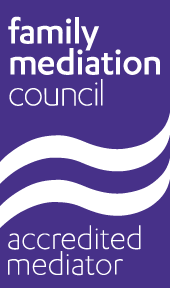Get Help With Child Contact
Get A free 20-minute Telephone consultation
We understand that child contact arrangements can be complex and difficult to navigate. That’s why we offer you a free 20-minute telephone consultation with our experienced child contact solicitor.
During your consultation, we’ll discuss your specific situation and answer any questions you have about child contact law. We’ll also help you understand your rights and options so that you can make the best decisions for your children.
Don’t wait, book your free consultation today!
When a relationship breaks down, it is a difficult time, especially when there are children involved.
In cases involving children, our priority is to ensure that the child’s welfare and best interests are at the forefront. Whether you have parental responsibility for a child or are an individual seeking a Child Arrangements Order in respect of a child, our family law specialists will assist you through the process to help resolve issues and bring clarity to your child arrangements as amicably and quickly as possible with our wealth of knowledge and experience.
We can deal with disputes about your child’s residence, limited or restricted contact with your child, or any other issues surrounding your child. At Amnesty Solicitors, we will ensure that the welfare interest of your child is paramount in any decisions that are made to resolve your circumstances, whether it is by negotiating arrangements or guiding you through the court process.
What is a Child Arrangements Order?
A Child Arrangements Order specifies and regulates with whom a child is to live, spend time or otherwise have contact and when a child will live, spend time or otherwise have contact with an individual. This often occurs when there is a breakdown of a relationship and so parents are unable to agree on how to divide the care of their children.
Which law governs Child Arrangements Order?
Child Arrangements Orders are governed by Section 8 of the Children Act 1989.
Can I apply for a Child Arrangements Order?
Whilst it is usual for parents of a child to predominantly make an application for a Child Arrangement Order, it may be possible for you to make an application if you are:
- The child’s parent, guardian or special guardian.
- The child’s step-parent or any person who has Parental Responsibility for the child under a Parental Responsibility agreement or order.
- Any person named as the person with whom the child is to live in a Child Arrangements Order that is in force.
- Any person in a marriage or civil partnership (whether subsisting or not) in relation to whom the child has been treated as a child of the family.
- Any person who the child has lived with for three years. This period need not be continuous but must not have begun more than five years before and ended three months before the application being made.
- Any person who has the consent of each person(s) named in a Child Arrangement Order that is in force, as the person(s) with whom the child is to live.
- Any person who has the consent of the local authority where the child is in local authority care.
- Any person who has the consent of each person(s) with Parental Responsibility for the child.
- Any person (who is not the child’s parent or guardian) who has Parental Responsibility for the child by being named in a Child Arrangement Order as the person with whom the child is to spend time or otherwise have contact.
- A local authority foster parent who has had the child living with them for one year immediately before the application is made.
- A child’s relative who has had the child living with them for one year immediately before the application is made.
What if you do not fall into any of the above categories?
If an individual does not fall within any of the above categories then application for permission will need to be made to the court to make an application for a Child Arrangements Order.
What types of contact take place under a Child Arrangements Order?
The court may order any of the following types of contact to take place under a Child Arrangements Order:
- Direct contact
- Indirect contact: This is ordered by the Court if it is not appropriate for the child to see the person directly as there may be a potential risk to the child’s wellbeing. This is through gifts, letters or cards.
- Overnight contact
- Supervised contact
If the court deems that there is safeguarding concerns for the child and it is unsafe for the child to have contact, the Court can exercise discretion and order for no contact to take place between a child and a named individual.
How long will a Child Arrangements Order last?
The court can stipulate the duration of a Child Arrangement Order. A Child Arrangements Order stipulating whom a child is to spend time with and other contact arrangements will usually subsist until the child reaches the age of 16, or 18 years old in exceptional circumstances.
A Child Arrangement Order regulating with whom the child is to live with will continue until the child reaches the age of 18.
A Child Arrangement Order will end automatically if a child’s parents live together for a continuous period of more than six months after the order has been made.
What will the Courts consider?
In determining whether to make a Child Arrangements Order, the Court considers a range of varying factors which predominantly begins with considerations such as:
- the welfare of the child
- the desires of the child
- the emotional or educational needs of the child
- the impact of an order being made upon the child
- the age of the child
- any possible occurrence of harm to the child.
What is the process in making an application for a Child Arrangements Order?
Step 1: Mediation
Before an application is made to the Court, mediation must be considered, unless deemed exempt, in order to attempt to settle the problem. This is called a MIAM (Mediation Information and Assessment Meeting).
Step 2: Application to the Court (C100)
If a MIAM was unsuccessful, then the applicant would proceed to file an application to the Court for a Child Arrangements Order. This will include the details of the parties, the child/ren as well as the reasons as to the recourse they are seeking.
Step 3: First Hearing and Dispute Resolution Appointment (FHDRA)
This is the first court hearing after an application has been made to court for the Child Arrangement Order. It is held to assist the court in identifying issues between the parties at an early stage and to see if it is possible for the parties to reach an agreement.
If the issues are not resolved and no agreement is reached then the court will order how the matter is to proceed and directions will be provided as to any further evidence including a CAFCASS report.
Step 4: Dispute Resolution Appointment
This hearing considers any additional evidence and/or reports obtained after the FHDRA. The matter can settle at this hearing.
Step 5: Final Hearing
At this hearing, the Court will assess the evidence provided by both parties and make a final order in relation to the Child Arrangements Application.
Can parties agree to depart from the arrangements set out in the Child Arrangements Order?
If the parties subject to the Child Arrangement Order agree on any stipulated changes, this would not breach the court order. However, the changes will not be legally binding unless the order is formally varied by the court. Therefore, if any problem arises to informal changes then parties will need to revert to the original court order.
Can variations be made to a Child Arrangements Order?
Yes, so long as the proposed changes are made taking into the consideration the child’s best interests.
What happens if a party breaches the Child Arrangements Order?
An application could be made to the Court for Enforcement. The Enforcement Order will be granted by the Court if it is satisfied beyond reasonable doubt that a person has failed to comply with the order.
Contact our London Family solicitors
To arrange an initial consultation with our family solicitor, contact our team so that we can discuss the arrangements concerning your children and assist you further.
Contact us on t: 0207 183 8463 or contact us using the email form below to see how we can be of assistance.





